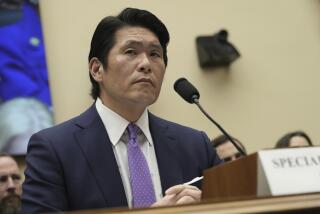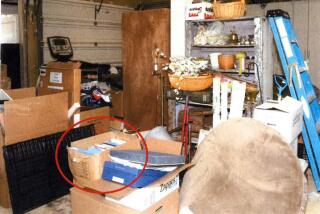Testimony in Manning’s WikiLeaks case shows breadth of evidence
Personal computer drives, compact discs and media cards containing classified information were found during searches of Army Pfc. Bradley Manning’s bunk in Iraq and the home of his aunt in Maryland, Army investigators testified on the second day of the soldier’s pretrial hearing.
Investigators also found chat logs on Manning’s personal laptop in Iraq that showed the Army analyst had bragged to a former hacker that he had leaked to the WikiLeaks website hundreds of thousands of State Department cables, ground reports from Iraq and Afghanistan, Guantanamo Bay detainees’ files, and videos of U.S. airstrikes in Iraq and Afghanistan. The former hacker, Adrian Lamo, had acknowledged in previous reports that he had been in contact with a person who identified himself as Manning.
In addition, logs from a secret network called Intel Link showed that classified CIA and State Department files had been accessed by a military computer assigned to Manning at Forward Operating Base Hammer in Iraq, said special agent Mark Mander, an Army investigator who testified Saturday at the Article 32 hearing, a military proceeding that is similar to a grand jury hearing in the civilian justice system.
Military investigators searched a trailer Manning shared with another soldier, and questioned Manning’s aunt, Debra Van Alstyne, at her home in Potomac, Md. In Van Alstyne’s basement, investigators found hard drives and media cards belonging to Manning and packages he had mailed from Iraq to himself at her address, witnesses said.
The testimony from Mander and three other Army investigators revealed the scope of the computer forensic evidence in the case.
Manning, who turned 24 on Saturday, is accused of methodically leaking a massive trove of classified information taken from a secret U.S. intelligence network. He faces more than 20 criminal charges, including aiding the enemy and transmitting defense information in violation of the Espionage Act. If convicted, he could be sentenced to life in a military prison.
Mander’s testimony also revealed that another man, a former Department of Energy employee named Jason Katz, was being investigated by the FBI on suspicion of possession of an encrypted video of an airstrike in Granai, Afghanistan. The video was copied by Manning from a case folder on a U.S. Central Command military server, Mander said. Katz was a computer analyst at Brookhaven National Laboratory in New York from February 2009 to March 2010 and allegedly had a copy of the encrypted video on his personal laptop.
Manning’s attorneys focused some questions on the soldier’s struggle with his sexual orientation, asserting that the Army violated its own procedures by ignoring evidence that Manning was gay and in violation of the military’s “don’t ask, don’t tell” policy, a recently repealed rule that barred openly gay service members from serving.
In April 2010, Manning emailed a supervisor a photograph of himself dressed as a woman and wrote that he was struggling with “gender identity disorder,” said the senior intelligence officer in charge of Manning in Iraq, Capt. Steven Lim.
The email was not passed on to superior officers until after Manning’s arrest that May, said Lim, who acknowledged that if he had seen it earlier, Manning might have been denied access to the unit’s computers.
Lim described Manning as a smart soldier who was adept at using software to compile and analyze large amounts of data about attacks by militias in Iraq. But he portrayed the intelligence unit Manning belonged to as sometimes overwhelmed and chaotic. Unmarked compact discs were strewn about the classified work space, and soldiers easily could copy data, Lim testified.
The hearing continues with more government witnesses Sunday.
More to Read
Start your day right
Sign up for Essential California for news, features and recommendations from the L.A. Times and beyond in your inbox six days a week.
You may occasionally receive promotional content from the Los Angeles Times.







